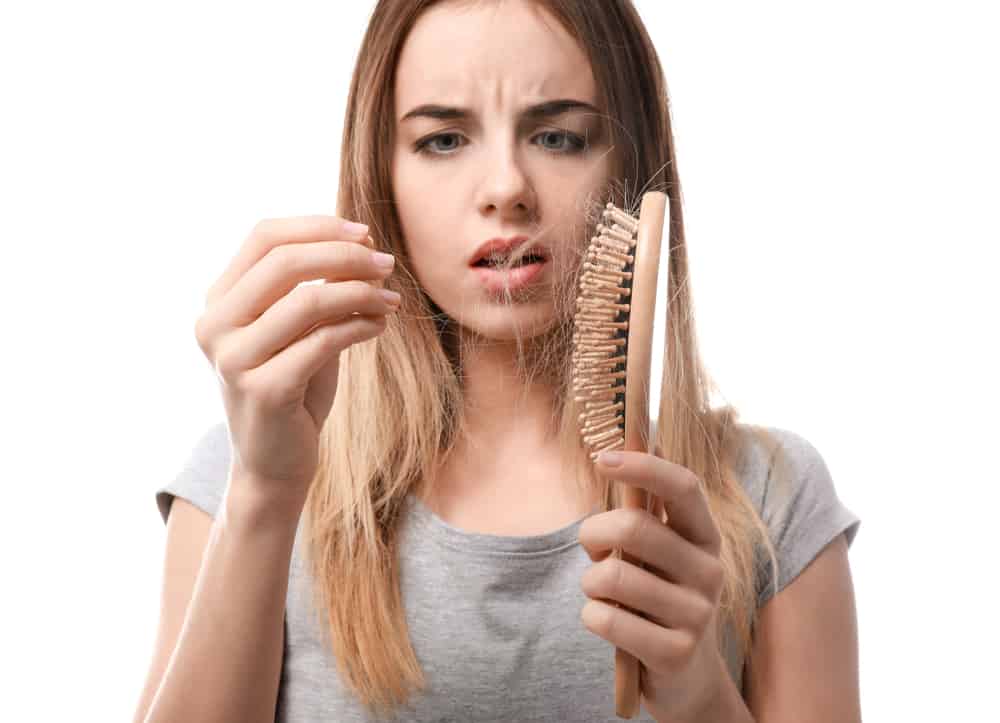Stress and Hair Loss

We often think of stress as a bad thing, but it is in fact one of the best ‘built in’ survival mechanisms we have! Otherwise known as the ‘Fight or Flight response’, our body is designed to react quickly to immediate threats and perceived danger. The release of adrenal hormones (cortisol and adrenaline) causes our heart rate and blood pressure to rise, blood flow is increased to our muscles, and blood sugar levels go up to supply us with the energy we need, and in that moment we either stay and fight off the threat, or we run for our lives! If it weren’t for our fight or flight responses we would not be here today, that’s for sure.
The problem with stress
Stress is designed to be an acute response, reacting quickly under threat, then returning to a normal state when the threat has subsided. However, in today’s world stress has developed into a chronic issue for many people, which can lead to long term health problems such as heart disease, high blood pressure, diabetes, and auto-immune disease, if stress is not managed well.
How can stress affect our hair?
We are more likely to suffer hair loss in response to extreme stressful situations and events (either physical or emotional) such as:
- Death of a loved one
- Losing a job
- Severe Illness/infection (particularly when accompanied by a fever)
- Surgery
- Injury
The hair loss experienced in these situations is usually an isolated event and self-limiting so the hair loss will often return to normal on its own.
Chronic stress and anxiety that many of us experience on a daily basis (for a whole variety of reasons) is more likely to affect our hair indirectly instead!
When we are anxious and stressed over long periods, self-care tends to go on the back burner. We stop eating and sleeping properly, we are not as active, which can eventually lead to additional health issues. Furthermore, stress responses supress digestion and immunity, so it is common to develop nutritional deficiencies and frequent minor illness which can lead to hair loss overtime.
The most common types of stress related hair loss are:
Telogen Effluvium

This is a disruption to the normal hair cycle leading to an increase in the amount of hair shed daily. The growing (anagen) phase of a proportion of hairs is arrested prematurely, causing those hairs to enter their resting (shedding) phases earlier than normal. This is a temporary ‘shortening’ of the hair cycle, which occurs roughly 3 months following the triggering event. You are likely to see hair on surfaces around the home, in the hairbrush, and in the plughole.
Alopecia Areata
This type of hair loss causes oval/circular patches of hair loss to develop. This can happen to any hair baring surface of the body, but commonly affects scalp hair. Typically, the patches will be smooth to the touch, and are usually symptom free (no itching, burning, or pain). The pathological mechanisms for alopecia areata are not completely understood, but it is considered have some genetic involvement. Alopecia areata is known to be triggered by stressful events and illness.
Trichotillomania/Trichotillosis
Stress can manifest in different ways, and for some this can lead to pulling your own hair out! Stress and anxiety can be a common trigger of trichotillomania, some may just twist and rub the hair strands causing hair breakage, while others will pull out large amounts of hair leading bald patches. It is also common to pull eyelashes and eyebrows too. This is considered a psychological issue, and treatment is specific to the patient’s individual needs. Sometimes simple stress management techniques are enough, some patients may benefit from cognitive behavioural therapy, or other talking therapies via their GP.
Some simple ways to manage stress include:
- Getting outside in the fresh air.
- Walking
- Exercise
- Yoga
- Meditation (there are some excellent apps out there)
- Mindfulness
- Taking steps to improve sleep quality
- Eating a healthy balanced diet (reducing sugar and processed food)
- Talking to friends and family
- Listening to music
- Dancing around the living room (my personal favourite!)
